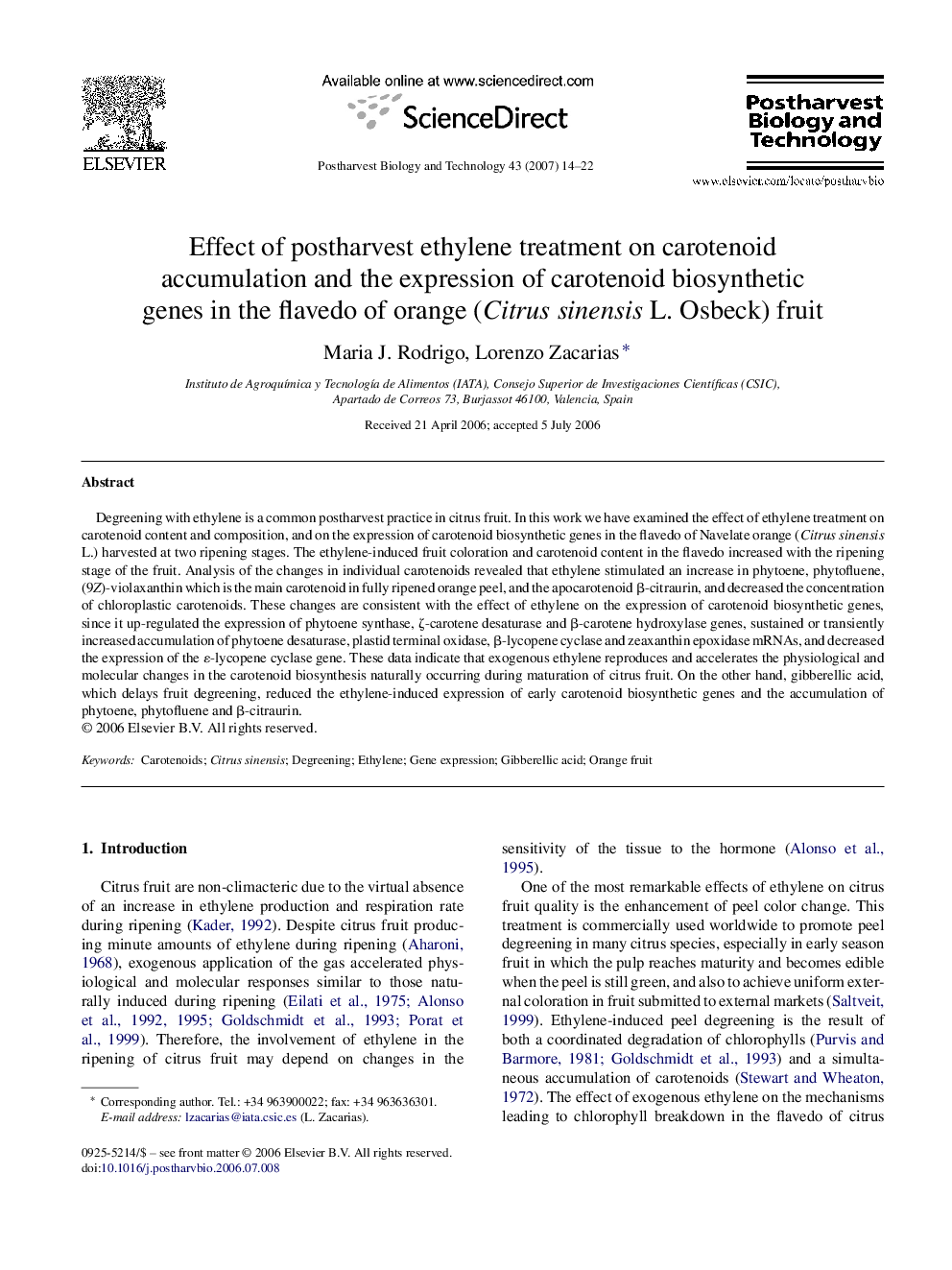| کد مقاله | کد نشریه | سال انتشار | مقاله انگلیسی | نسخه تمام متن |
|---|---|---|---|---|
| 4519882 | 1322859 | 2007 | 9 صفحه PDF | دانلود رایگان |

Degreening with ethylene is a common postharvest practice in citrus fruit. In this work we have examined the effect of ethylene treatment on carotenoid content and composition, and on the expression of carotenoid biosynthetic genes in the flavedo of Navelate orange (Citrus sinensis L.) harvested at two ripening stages. The ethylene-induced fruit coloration and carotenoid content in the flavedo increased with the ripening stage of the fruit. Analysis of the changes in individual carotenoids revealed that ethylene stimulated an increase in phytoene, phytofluene, (9Z)-violaxanthin which is the main carotenoid in fully ripened orange peel, and the apocarotenoid β-citraurin, and decreased the concentration of chloroplastic carotenoids. These changes are consistent with the effect of ethylene on the expression of carotenoid biosynthetic genes, since it up-regulated the expression of phytoene synthase, ζ-carotene desaturase and β-carotene hydroxylase genes, sustained or transiently increased accumulation of phytoene desaturase, plastid terminal oxidase, β-lycopene cyclase and zeaxanthin epoxidase mRNAs, and decreased the expression of the ɛ-lycopene cyclase gene. These data indicate that exogenous ethylene reproduces and accelerates the physiological and molecular changes in the carotenoid biosynthesis naturally occurring during maturation of citrus fruit. On the other hand, gibberellic acid, which delays fruit degreening, reduced the ethylene-induced expression of early carotenoid biosynthetic genes and the accumulation of phytoene, phytofluene and β-citraurin.
Journal: Postharvest Biology and Technology - Volume 43, Issue 1, January 2007, Pages 14–22